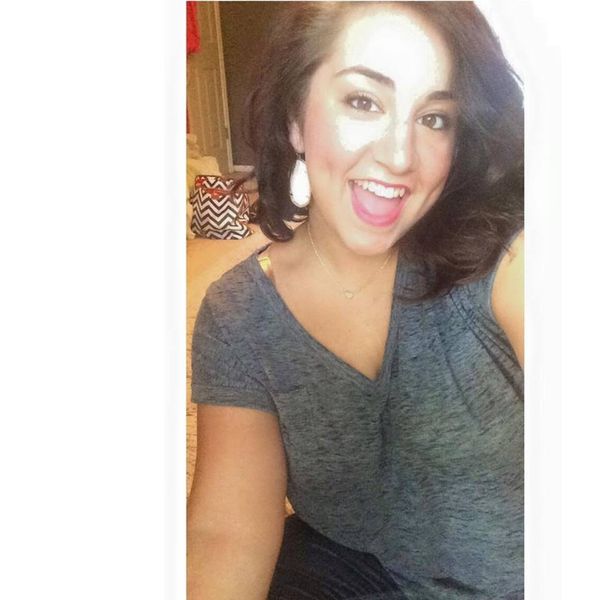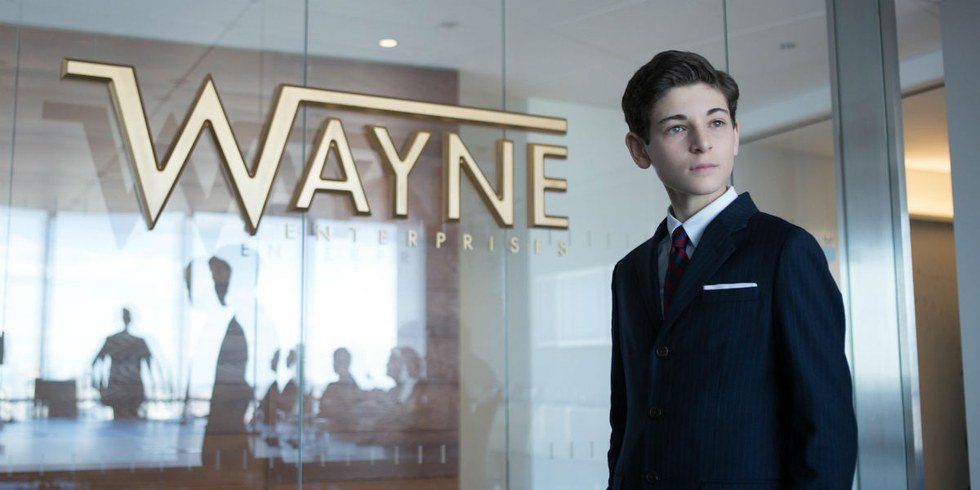One of the most important topics constantly being debated in my world is that of equality. As a 24-year-old straight, White Protestant it can sometimes be difficult to know exactly what I can do to help the people around me. German ancestry aside, I belong to nearly every major group that has held (and abused) power in the US over the past few centuries, in some cases throughout history and the most of the world. While I understand that I did not purposely create this system that I was born into, I also understand that I am afforded a greater access to resources than so many people around me. Here's where my position gets tricky: I am not, and will never be, qualified to speak for the experiences of an oppressed people. Whatever trauma or hardship I experience I face in my own life, while still very real, does not make me understand what it's like to live outside of privilege. Knowing a black person does not make me "not racist," and going to a Bernie Sanders rally does not necessarily make me a fellow fighter for immigrant rights. There are all of these cliches I hear almost daily that try to soften or excuse the struggles that people are still facing when it comes to equality: "I don't see color," "She shouldn't have worn revealing clothing," "He shouldn't have struggled," the list goes on and on. There seems to be a real emphasis on proving to other people that are not prejudiced, and I see it working against us. Why should I be embarrassed to admit when I don't understand something? Why should I argue that I'm not racist or sexist instead of taking the time to examine my own mind and figure out how to do better?
A couple of weeks ago while finishing an episode of Gotham, I found myself wondering if maybe young Bruce Wayne and I had more in common than I'd noticed before. For those who don't watch Gotham, the show takes place during the time before Bruce became Batman and after the death of his parents. Gotham City is an epicenter of crime, corruption, and violence, a constant source of terror for its inhabitants. Bruce belongs to a small, elite class of society that manages to avoid the brunt of Gotham's daily hostilities. While investigating his parents' murder, Bruce stumbles upon some dangerous secrets about Wayne Enterprises, a corporation that his parents founded and worked in. Ignoring the warnings of his advisors, he dedicates himself to uncovering these secrets for himself.
It's important to note that Bruce at this point is no hero. He's a spoiled, naive child whose superpowers are money and a good family name. He does not carry solutions for the people of Gotham, he often acts impulsively and has to be bailed out of situations by Alfred or the police (mostly Alfred). His true value, however, lies in his insatiable curiosity about the inner workings of Gotham City and its inhabitants, and his determination. He seems to learn and grow with every experience. His questions and rashness pull others into situations that teach them a little more about the City as well. Here is where I find inspiration.
To be like Bruce in my own world is to examine my own predecessors, to try to understand the world that they created and the legacy that I perpetuate. While the Waynes were widely esteemed by society and their friends, they also helped change Gotham into the crime-laden, desperate city we find in the television show. To be like young Bruce is not to be like Batman. It's to be praised, at times, without merit. It's to be painfully unaware of the struggles of the majority of people around me. Though Bruce experiences trauma many times, he always returns to his mansion. He, like me, has nothing but questions for his world. He has a stable network of support backing him while the rest of Gotham suffers.
Alfred reminds me of my own family and teachers sometimes. There are questions he simply doesn't want Bruce to ask, places he doesn't want Bruce to go. His main priority is the protection of his charge, and he is at a loss as to what to do with Bruce when he sees he can't stop him. My questions about equality are often met with excuses or dismissal, and I am not satisfied. So what now? Here my path diverges from Wayne. I can never be a hero, nor do I want to be. The question now is how to be the most helpful to people who are actually fighting for equality and living outside of it. In one of the most thought-provoking monologues, Bruce says, "One day, I am going to do something to help the people of Gotham. I don't know what yet, but I will. Meantime, I need to learn stuff. Number one: I need to learn how to live in the same world other people have to live in." He can never change what he was born into or who he is, but he can listen and learn. He can push against Gotham's system of oppression.
What I find most disturbing is how many people don't believe that inequality exists. As in across the board. Two myths are often at work here: the first is that each person's effort is met with an equal reward independent of racial, gender, or other factors. The second is that equality movements imply that the privileged class does not experience trauma or exert effort -- also not true. When people say "I worked hard for what I have," that's probably true. White privilege doesn't mean that I am handed everything, it means that my chances of success when I try something are greater than if someone of another race did the same thing. It means that I started out with society looking at me more favorably than if I had been born a person of color. It means that my crimes are more likely to be excused, that my landlord may be more lenient if I'm late on rent, and that I would be surprised if a police officer pulled me over without good reason. Male privilege doesn't mean I will automatically be given a huge salary when I start working somewhere, it means that people won't question whether people will be comfortable working under me as a male. It means that I will probably not have my coworkers or boss harassing me, questioning my merit or offering me benefits for sex.
As with anything I write, I hope this article serves to create beneficial conversation in my community. I want to get us talking to each other, even if that takes the form of criticism. I want to hear your thoughts and have my mentality challenged because that's the only way I know how to make this world a better place.





















